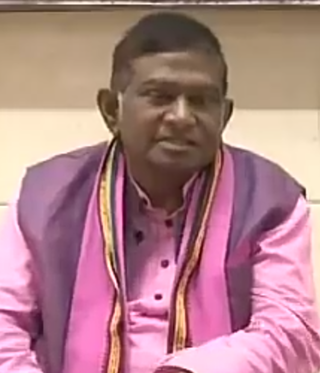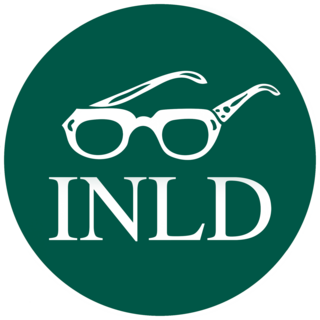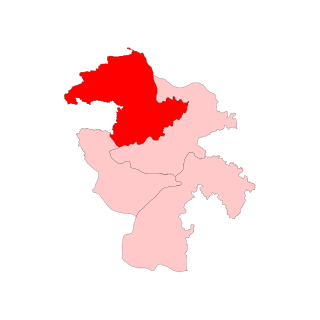
Ajit Pramod Kumar Jogi was an Indian politician, who has served as the 1st Chief Minister of Chhattisgarh from 2000 to 2003 and a member of the Chhattisgarh Legislative Assembly from Marwahi from 2018 to 2020 and from 2001 to 2013. He also served as a member of Lok Sabha from Mahasamund from 2004 to 2008 and from Raigarh from 1998 to 1999 and member of Rajya Sabha from Madhya Pradesh from 1986 to 1998 and district collector of Raipur in Office from 1978 to 1981. He was a member of Indian National Congress till 2016 and the founder of the political party named Janta Congress Chhattisgarh and the 1st President of the party from 2016 till he died in 2020.

The 14th Lok Sabha was convened after the 2004 Indian general election held in four phases during 20 April – 10 May 2004, which led to the formation of first Manmohan Singh ministry (2004–2009). Indian National Congress-led United Progressive Alliance won 62 more seats than previous 13th Lok Sabha. The Lok Sabha is the lower house in the Parliament of India. 8 sitting members from Rajya Sabha, the Upper House of Indian Parliament, were elected to 14th Lok Sabha after the 2004 Indian general election.

Indian National Lok Dal (INLD) is a political party based primarily in the Indian state of Haryana. It was initially founded as the Haryana Lok Dal (Rashtriya) by Devi Lal in 1996, who served as the Deputy Prime Minister of India.
Mungeli is a city and a Municipal Council in Mungeli district in the Indian state of Chhattisgarh. The pin code of Mungeli is 495334.
Karuna Shukla was a member of the 14th Lok Sabha of India.
Sahu is a surname found in India and Pakistan.
Aska Lok Sabha constituency is one of the 21 Lok Sabha (parliamentary) constituencies in Odisha state in eastern India.

Amethi is one of the 80 Lok Sabha constituencies in the Indian state of Uttar Pradesh. This constituency covers the entire Amethi district and was created in 1967. Like its neighboring constituency Rae Bareli, it is considered to be a bastion of the Indian National Congress. Its first member of parliament (MP) was Vidya Dhar Bajpai of the Indian National Congress (INC) who was elected in 1967 and held his seat in the next election in 1971. In the 1977 election, Ravindra Pratap Singh of the Janata Party became its MP. Singh was defeated in 1980 by Sanjay Gandhi of the INC. Later the same year, Gandhi died in a plane crash. This forced a by election in 1981 which was won by his brother, Rajiv Gandhi. Gandhi went on to represent this constituency until 1991, when he was assassinated by the Liberation Tigers of Tamil Eelam (LTTE). The subsequent by election held the same year was won by Satish Sharma of the INC. Sharma was re-elected in 1996. Sanjaya Sinh of the Bharatiya Janata Party (BJP) defeated Sharma in the 1998 election. The widow of Rajiv Gandhi, Sonia Gandhi represented this constituency from 1999 to 2004. Her son, Rahul Gandhi, was elected in 2004. He was the fourth MP from the Nehru–Gandhi family since 1980 to represent the seat. Gandhi held the seat till the 2019 election when he was defeated by a margin of 55,000 votes by the BJP's Smriti Irani. Irani was defeated in 2024 by a margin of over 1.67 lakh votes by Kishori Lal Sharma of the Indian National Congress.
Allahabad is a Lok Sabha (parliamentary) constituency in the Prayagraj district of Indian state of Uttar Pradesh.

Brahmapur is a Lok Sabha parliamentary constituency in Odisha, India.

Barhi Assembly constituency is an assembly constituency in the Indian state of Jharkhand.

Pathariya Assembly constituency is one of the 230 Vidhan Sabha constituencies of Madhya Pradesh state in central India. This constituency came into existence in 1961, following delimitation of the legislative assembly constituencies. It was reserved for the candidates belonging to the Scheduled castes from 1961 to 2008.
Pakaudi Lal Kol is an Indian politician and was member of the 15th and 17th Lok Sabha. He represented the Robertsganj parliamentary constituency of Uttar Pradesh.
Chandu Lal Sahu is an Indian politician. He was elected to the Lok Sabha from Mahasamund as a Bharatiya Janata Party candidate in 2009 and 2014. Previously, he had been elected as a member of the Chhattisgarh Legislative Assembly from Rajim in 2003.

Rattan Lal Kataria was an Indian politician from Haryana. He served as the Minister of State in the Ministry of Jal Shakti and Ministry of Social Justice and Empowerment till 7 July 2021. He was a member of the 16th Lok Sabha. He was elected to 16th Lok Sabha from Ambala as a candidate of the Bharatiya Janata Party with 612,121 votes out of 1,220,121 total, defeating INC candidate Raj Kumar Balmiki. Previously, he was elected to 13th Lok Sabha from Ambala as a candidate of the Bharatiya Janata Party. He was also a member of the Haryana Legislative Assembly from 1987 to 1991, representing the Radaur Assembly constituency. He was born on 19 December 1951, and educated at Kurukshetra University.
Dr Bhola Singh is an Indian politician from Shikarpur, Bulandshahr district belonging to Bhartiya Janata Party. He is director of Yaskin Infotech and Yaskin Enterprises.

Tamradhwaj Sahu is an Indian politician of the INC. He was the Home Minister of Chhattisgarh in the Bhupesh Baghel Government. He was a member of the Chhattisgarh Legislative Assembly representing Durg Gramin from 2018-2023.
Chaudhary Dharambir Singh Panghal is an Indian politician and a member of Lok Sabha from Bhiwani-Mahendragarh, Haryana. He won the 2014,2019 and 2024 Indian general elections, being a Bharatiya Janata Party member.

Krishan Pal Gurjar is an Indian politician and is the present Minister of State of Power and Heavy Industries. As a Member of Parliament in the Lok Sabha, he represents the Faridabad constituency in the state of Haryana. He won this seat in the 2014 Indian general election as a BJP candidate by a margin of 4,66,873 votes and he won election with margin of over 6 lakh in 2019 from Faridabad constituency. In August 2014 he also inaugurated Manjhawli bridge which is his dream project. In March 2024, he was re-fielded as the BJP candidate for the Faridabad constituency in the 2024 General Elections.
Chunni Lal Sahu is an Indian politician. He was elected to the Lok Sabha, lower house of the Parliament of India from Mahasamund, Chhattisgarh in the 2019 Indian general election as member of the Bharatiya Janata Party.









